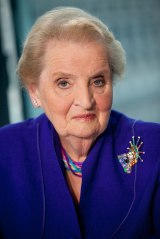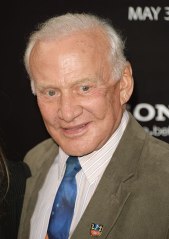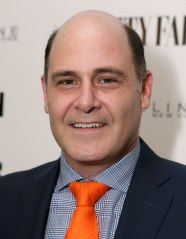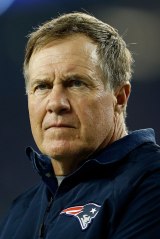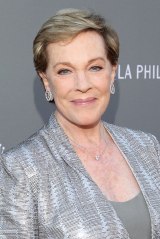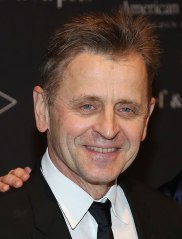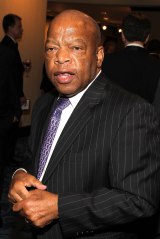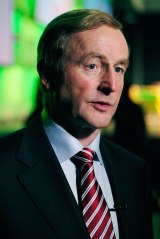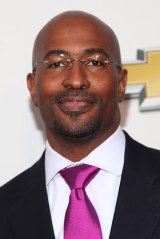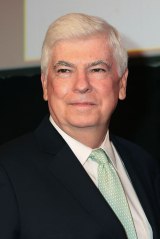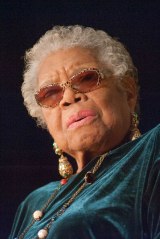
For the new book JFK: His Enduring Legacy, TIME interviewed dozens of people about John F. Kennedy and his impact on America. Fifty years after the president’s assassination, veterans of diplomacy, the arts, and football reflect on Kennedy’s influence.
Madeleine Albright, former U.S. secretary of state
“In 1958, when a student at Wellesley, I interviewed Senator John Kennedy for the college paper. I asked questions, he answered them; then I—being totally unprofessional—asked for his autograph, which I still have. Kennedy was the first president for whom I voted and the dominant presence in Washington when I lived there as a graduate student and young mother. Perhaps because he was denied the chance to grow old, I associate JFK with youth and with the confidence of a nation preparing to meet the challenge of civil rights at home and the danger of nuclear war abroad. Neither saint nor superman, Kennedy was still our most charismatic president, a leader who inspired a generation to seek public service, who sought to further the cause of justice and peace, and whose picture could be found on kitchen walls from Buenos Aires to Bombay. Since 1963, many have tried to imitate him, but he has not been replaced.”
Buzz Aldrin, retired colonel, U.S. Air Force, and astronaut, Apollo 11
“When I think back to the impact of John F. Kennedy on my life, the first thing that strikes me, I had no idea of how his speech on May 25, 1961, before Congress would affect me on a very personal level. President Kennedy in that speech set America on a trajectory to strive for a national goal—carrying out a human lunar landing and a safe return to Earth. Kennedy’s daring objective was reinforced by his speech over a year later on September 12, 1962, at Rice University, accented by that famous line: ‘We choose to go to the moon in this decade and do the other things, not because they are easy, but because they are hard.’ Even today, for me, that declaration remains riveting.”
Matthew Weiner, creator, Mad Men
“When I began Mad Men, I had no reason to think it would ever go beyond one season. I had set the pilot in April of 1960 and I knew that one of the most interesting things for me would be the election of that year and presenting both JFK and Richard Nixon as candidates and politicians, both without their presidential and other associations. After we were renewed I realized I had a chance to really look at the Kennedy presidency and its effect on normal people. 1962 was not known as ‘Camelot’ at the time, but I found that the Cuban Missile Crisis was the defining moment of that generation up to that point, and Kennedy’s handling of it on the public stage was so dramatic that it could serve as a catharsis for the near death experience being faced by the entire nation. When the show finally reached 1963 and the assassination, I really had no desire to deal with it at all. I knew it was well-trod territory and had been done so well dramatically by so many others and honestly I felt that it was forced and expected to go through this tragedy again, to exploit this moment. Then I realized that it was so crucial to the lives of our characters. Myself and all the writers immersed ourselves in it—we tried to capture the surprise and the terror and personal disruption that occurred that weekend. JFK was a young, handsome and forward-thinking leader who was also a father and a husband and occupied the most important job in, at the time, our most important institution. We wondered if somehow JFK’s murder made all institutions seem vulnerable, and that this collective loss, instead of unifying us opened the floodgates to nihilism. And I still don’t know if we had any unique insight, but I came to understand that when someone whose rhetoric is filled with hope is murdered, it can make all hope seem pointless.”
Bill Belichick, head coach, New England Patriots
“My most vivid firsthand memory of President Kennedy came when I sat several rows directly behind him at the 1962 Army-Navy Game in Philadelphia’s Municipal Stadium, as Navy beat the Cadets, 34-14. I was only 10 years old but will always cherish that day. The following year, I attended the Army-Navy game in the same stadium, only this time under very tragic, very surreal and emotional circumstances one week after the assassination. That day, Navy stopped Army at the two-yard line on the game’s final play for a 21-15 victory and a berth in the Cotton Bowl. I learned life lessons on leadership, teamwork, mental toughness from being around the 1963 Navy football team, also known as the President’s Team.”
Julie Andrews, performer
“The central themes of the musical Camelot were about hope, honor, humanity and peace. I believe President Kennedy embraced these ideals and wanted his legacy to reflect them. It was deeply moving to learn that Camelot touched him so much. He and his beautiful wife, Jackie, were advocates for the arts and embraced them wholeheartedly, knowing they are the best common denominator for the proliferation of good in this world, connecting us all in ways that nothing else can. It is fitting that this nation’s premier performing-arts center, and the awards it presents, bears the name of this remarkable ‘once and future’ president.”
Mikhail Baryshnikov, dancer, choreographer, Kennedy Center honoree
“I was 15 years old when President Kennedy was assassinated. I was living in Riga, the capital of the Soviet Republic of Latvia, which was of course occupied by the Soviet forces at the time. Images of Kennedy, his brother and family members filled the smuggled foreign magazines and even official press. I was smitten with the family’s style; handsome, confident, graceful and spirited—they were glamorous compared to the faces of Russian leaders like Nikita Khrushchev and Leonid Brezhnev. At that time I understood there really was an ‘ocean between us.’”
John Lewis, Representative for Georgia, former chairman of the Student Nonviolent Coordinating Committee
“The day of the March in Washington, 50 years ago, on August 20, 1963. President Kennedy had some questions, some reservations about the march when we first met with him. And he thought it would be chaos and disorder and violence. But on that day, after everything had gone so well, he stood in the door, greeting each one of us. And he said, ‘You did a good job.’ He was like a proud father: ‘You did a good job! You did a good job!’ And when he got to Dr. King: ‘And you had a dream.’ That was my last time seeing the president.
Enda Kenny, Prime Minister of Ireland
President Kennedy was an inspirational figure for Ireland and the Irish people–he imbued in us a greater sense of optimism and self-belief, where Ireland could look confidently to its future, with a strong sense of our place in the world.
Van Jones, President of Rebuild the Dream and Co-host of CNN Crossfire
“I grew up at time when if you went inside a black church, you would see a picture of Dr. King, Bobby Kennedy and JFK on the wall in church like they were apart of Jesus’s crew. You grew up in the shadow of those three guys. And of course, you wanted to be like them, aspire to give to the country what they gave to the country. I even had a bulletin board in my room when I was in second or third grade and I would take my little round scissors and I would cut out any article about the Kennedys because they were our heroes.”
Chris Dodd, former U.S. senator, and chairman and CEO, Motion Picture Association of America
“Over 40 years ago, when I arrived in the Dominican Republic as an English major who spoke almost no Spanish, I was asked a question I’ve been asked a thousand times since: ‘Why did you join the Peace Corps?’ The answer was simple: because an American president asked me to.”
Maya Angelou, author and poet
“I was always impressed by President Kennedy and the Kennedy family as a whole. I was proud that they were modern white Americans who were not tied to slavery, which is how many black Americans, viewed or measured white Americans. President Kennedy also had a respect and appreciation for intelligence and in turn I think he led us to respect it as a nation. We need art, we need music, and we need poetry to wean us away from bestiality. President Kennedy understood that and he made art a part of his life, which is in part why he asked Robert Frost to recite a poem at his Inauguration. When I found out President Kennedy was assassinated I was living in Egypt, working as a reporter. I counted on my American citizenship as a shield over seas. After his death I felt as if the world had slipped away beneath my feet.”
JFK: His Enduring Legacy is available now on newsstands and wherever books are sold.


